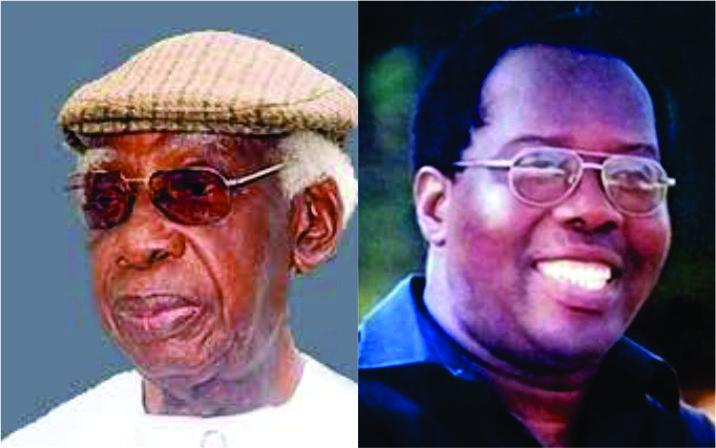20 years of delivering a dream the Nigeria Prize for Literature way
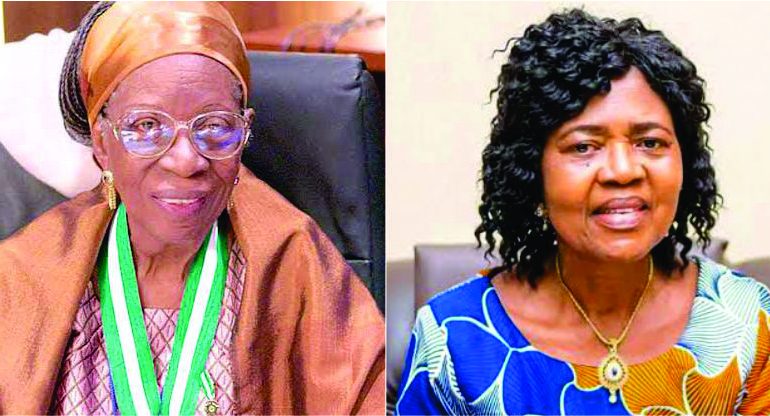
* Countdown begins to April 2
* Segun, Adimora-Ezeigbo, Adeleke, Idada as Children’s Literature prize winners so far
By Anote Ajeluorou
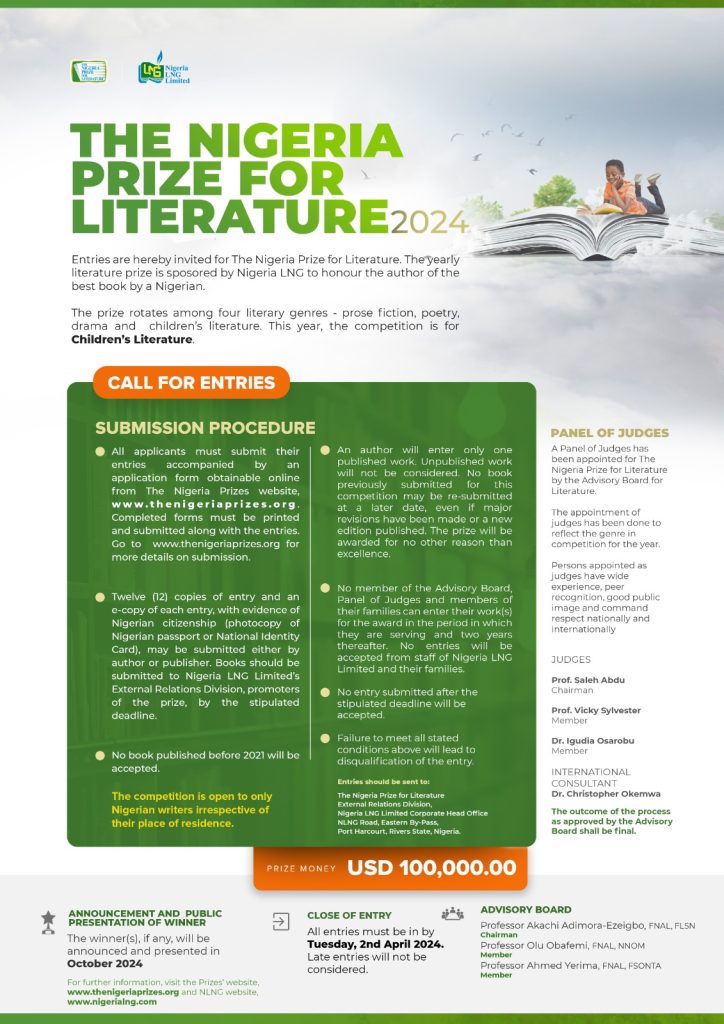
COUNTDOWN TO SUBMISSION DEADLINE ON APRIL 2: 6 DAYS TO GO!
IN a country where dreams die young on account of flip-flop policies, or even a lack of them, with the economy shrinking at an alarming rate, 20 years in the life of a corporate entity is something to clink Champagne glasses in celebration, and then pour generous libations for better fortunes going into the future. This has been the story of The Nigeria Prize for Literature which clocks 20 years this year since its inception in 2004, sponsored by the gas giant, Nigeria Liquified Natural Gas Limited (Nigeria LNG), which was established 35 years ago in 1989 and sits on the edge of the Atlantic Ocean in the Island Kingdom of Bonny, Rivers State.
In its 20th year, the genre in focus is Children’s Literature, where the best writer for children will be celebrated in October with a diadem and handsome cash award for literary excellence. The best children’s book was last awarded in 2019 for Boom Boom by Jude Idada.
A statement by the organisers sum up the rationale for establishing the literary contest, as it notes, “The Nigeria Prize for Literature, known for its transparent assessment process, has recorded over 1,851 entries for 16 competitions that have so far produced 12 winning works since its commencement in 2004. With The Nigeria Prize for Literature, it is expected that the quest for a prestigious prize will improve the quality of writing, editing, proof-reading, and publishing in the country with far-reaching positive effect on print, broadcast journalism, film and theatre production. The competition runs a four-year cycle that revolves around Prose Fiction, Poetry, Drama and Children’s Literature in that order. In 2019, the focus was Children’s Literature and the winner was Boom Boom by Idada. A new four-year cycle began in 2020 with a focus on prose fiction.”
Also, the organisers are not shy in naming reasons for setting up the prize, noting that the slide in the fortunes of writing, criticism, publishing, consumption and exposure of literature at a point in time prompted the establishment of the prize to raise the country’s literature to the level where it previously was when, for instance, Wole Soyinka won the Nobel Prize for literature in 1986. A literature that attained that enviable height should have nothing in common with mediocrity, the organisers reason, and promptly went about setting a structure of excellence and motivation.
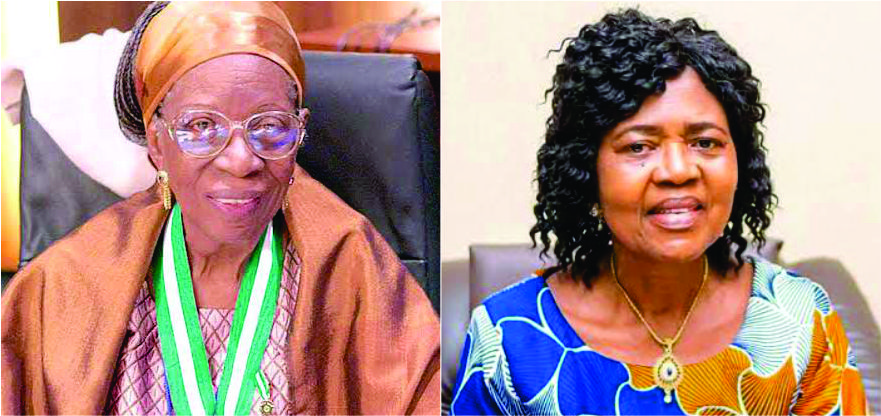
First joint winers of children’s prize – Mabel Segun and Prof. Akachi Adimora-Ezeigbo in 2007
According to the organisers, “Nigeria became the first in Africa to produce a Nobel laureate in Literature in the person of Prof. Wole Soyinka. The country also produced one of the most decorated authors in the world, Prof. Chinua Achebe, whose book, Things Fall Apart, translated into more than 61 languages, has been listed by Encyclopaedia Britannica as one of 12 novels considered the greatest book ever written. Then there are the great legacies of other Nigerian writers such as Ben Okri, Cyprian Ekwensi, Femi Osofisan, Gabriel Okara, Christopher Okigbo, Chukwuemeka Ike, Flora Nwapa, among others, whose writings were compelling and helped positively shape what people know about Nigeria.
“However, prior to inauguration of the prize, the quality of writing, publishing, news features and articles in newspapers and magazines, and the quality of film production on television and radio did not paint a picture of the excellence the industry was previously known for. It therefore became evident to us at Nigeria LNG that a well-run literary prize with transparent adjudication process, administered by respected academics, writers and lovers of literature, and with respectable monetary reward will spur creativity and contribute to the improvement of the quality of writing, editing and publishing in Nigeria. The rest, as they say, is history.”
As the countdown to Tuesday week, April 2, 2024 submission deadline fast approaches, here’s a look at writers who have won the children’s prize and what the likelihood will be this year. Although the prize started with prose fiction in 2004, no winner was announced that year. However, the following year fared better for poetry, as two winners emerged but who are now deceased. They are Prof. Ezenwa Ohaeto and Gabriel Okara; they jointly won with their works – Chants of a Minstrel and The Dream: His Vision respectively in 2005. 2007 was the first time it became the turn of children’s literature. A joint winner was also announced. Just like the two patriarch in 2005, two matriarch emerged winners in 2007. They are Prof. Akachi Adimora-Ezeigbo and Mabel Segun for their works – My Cousin Sammy and Readers’ Theatre: Twelve Plays for Young People. It was also the first time cross genres would win the prize – prose and drama genres respectively.
Clearly a grand matriarch of Nigerian literature, Segun, who was educated at the University of Ibadan, where she obtained a BA degree in English, Latin and History, and rose to become Vice Principal at National Technical Teacher’s College, Yaba, Lagos, now Yaba College of Technology. My Father’s Daughter was her first published book in 1965. As a champion of children’s literature, she founded Children’s Literature Association of Nigeria (CLAN) in 1978, and Children’s Documentation and Research Centre (CDRC) in 1990. She was a founding member of Association of Nigerian Authors (ANA) alongside Chinua Achebe. As a broadcaster, she won Artist of the Year at the Nigerian Broadcaster Corporation award in 1977 and was decorated with the Nigerian National Order of Merit (NNOM) in 2015.
On the other hand, Segun’s joint winner in 2007 Prof. Adimora-Ezeigbo currently chairs the Advisory Board of The Nigeria Prize for Literature, a position she has held now since 2018. A past winner for drama in 2006 Prof. Ahmed Yerima who won with Hard Ground is also on the Advisory Board of The Nigeria prize for Literature as well as Prof. Olu Obafemi.
It will not be until 2011 before children’s literature turn came round again. That year Mai Nasara (real name – Adeleke Adeyemi) won the prize with his children’s book, The Missing Clock. It’s the story of a four-year old “bright and boisterous boy—when he arrived at an original idea. Now 9, he sets out to write the story—with the help of his parents and a kind and clever 14 year-old orphan girl—a full half decade later. It all began when he decided he wanted many more of something he liked to share. When he overheard adults talk on how to multiply things, he swung into action—well ahead of everybody! When hard times came calling on the Tobe family, their son appeared to have buried—with his dream— their only hope for the rainy day.”
The next circle for children’s literature was 2015, but it proved problematic. Like 2004 and 2009, the prize was not awarded, as the Advisory Board cited lack of quality entries for the prize that year. That verdict cast a pale of sorrow on the literary community. But perhaps in order to avoid the unpleasant backlash of 2009, the Advisory Board quickly turned that circle into a learning curve for everyone involved by organising a workshop for children’s writers. The aim was to horn the writing skills of writers of children’s literature. Local and international resource persons were enlisted for the task. A slim but illuminating and enriching volume on how to write for children came out of that workshop exercise and somewhat mollified those who were initially outraged by the verdict of no prize for 2015.
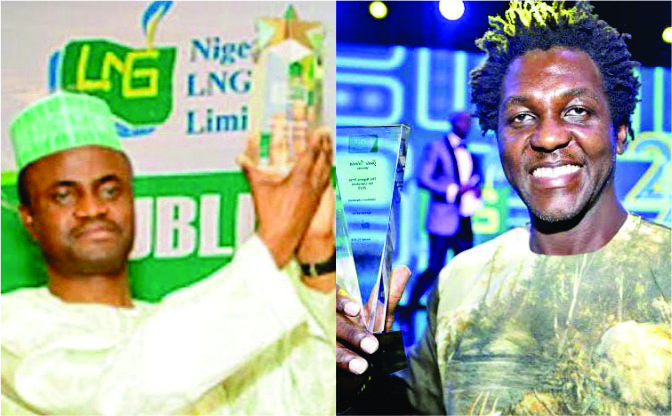
2011 and 2019 winers – Mai Nasara (Adeyemi Adeleke) and Jude Idada
However, the next circle in 2019 fared better, as a winner emerged in Idada with his book, Boom Boom. But this was after he was shortlisted alongside Dunni Olatunji and O. T. Begho with their works – Mysteries at Ebenezer’s Lodge and The Great Walls of Benin respectively. Covid-19 outbreak as a global pandemic scuttled the prize in 2020, and so pushed forward the prose prize to 2021, otherwise the current children’s prize should have been held in 2023 and not this year, 2024.
It’s just about a week to the end of entry submissions for the Children’s Literature prize category 2024 on April 2. Who wins it? Already, the judges for this year’s prize await end of submissions when the books will be handed over to them by the Advisory Board perhaps a week after for them to start the onerous work of sifting the chaff from the wheat. The judges are Prof. Saleh Abdu, Prof. Vicky Sylvester and Dr. Igudia Osarobu, with Dr. Christopher Okemwa as the International Consultant jury.
But like last year for drama category and unlike two years ago for poetry, this year’s is an all-academic jury, a proposition many continue to fault as it excludes other informed consumers of literature. While The Nigeria Prize fro Literary Criticism obviously requires an all-academic jury on account of its academic nature, the main prizes do not necessarily require a university don on the jury, if at all. Perhaps, the Advisory Board may need to look at splitting the jury for the two literary prizes and thereby making the main prize a people’s prize. Journalists, historians, musicians, thespians, policemen, etc, who are knowledgeable consumers of literature are known to adjudicate prizes such as The Booker, the Caine and Pulitzer and other equally prestigious prizes the world over. Nigeria also operates in that global space and cannot be an exception.


